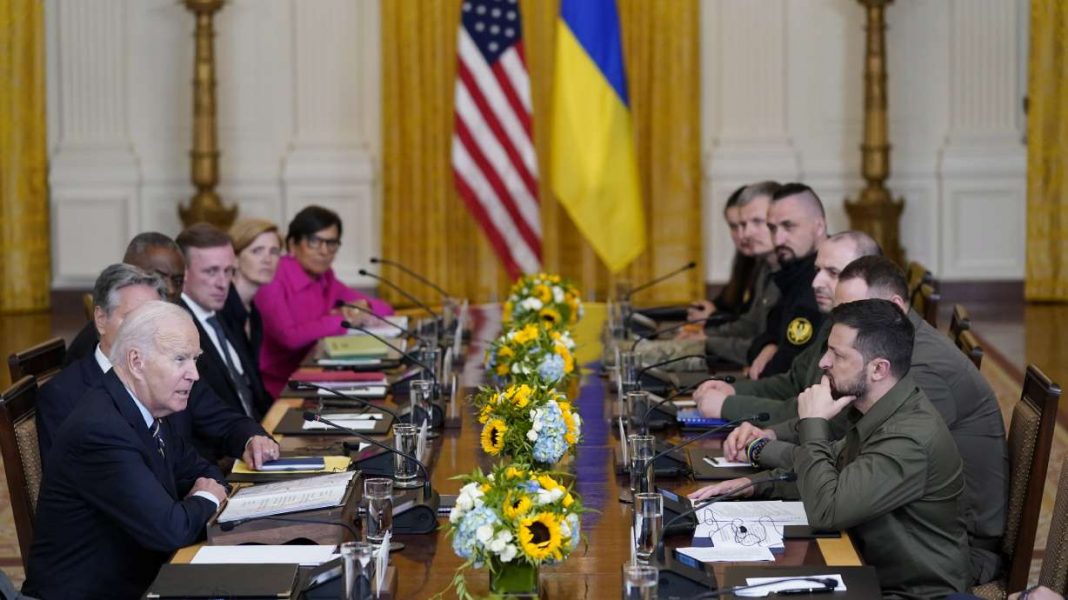The ongoing conflict between Ukraine and Russia, combined with the winter weather, has presented a tough challenge for Ukrainian President Volodymyr Zelenskyy and his administration. During a recent trip to Washington, a top adviser to Zelenskyy admitted that the road ahead would not be an easy one, especially as they face opposition from Russia and an uncertain level of support from the US Congress.
Despite President Joe Biden’s proposal of a $106 billion aid package which includes funds for Ukraine and Israel, it remains in limbo in Congress, subject to new demands from Republicans who want immigration policy changes in exchange for their support.
This shift in focus to domestic political issues – immigration and border security – is causing tension and division within the discussion of foreign policy and could significantly impact the delivery of military and humanitarian aid to Ukraine and Israel.
With Congress returning from their holiday break, Biden’s aid proposal is at the top of their agenda and the stakes couldn’t be higher. Failure to reach a bipartisan agreement could delay crucial support to Kyiv and Tel Aviv and harm America’s global standing.
“It’s a critical time,” said Luke Coffey, a senior fellow at the Hudson Institute, adding that “running out of money” was a real concern. This is a stark contrast to the widespread support seen for Ukraine and its quest for stronger relations with the West against Russian aggression just a year ago.
However, now that support for Ukraine has become a political battleground, with more extreme Republicans and some Americans voicing concerns about the amount of aid given to Ukraine, the delivery of aid is at risk.
In an effort to gain Republican support, Biden has been meeting with a group of bipartisan senators to discuss immigration policy changes, such as tightening asylum laws and resuming construction of the border wall. However, these demands have been met with resistance from Democrats and could potentially jeopardize support for Ukraine from both sides.
Sen. Chris Murphy of Connecticut said that while discussions were ongoing, there was no guarantee of reaching a solution. Many Republicans, including Tom Cotton of Arkansas, insist that changes to border policy are necessary for any aid to pass.
Meanwhile, the Pentagon is feeling the pressure as their funding for Ukraine is quickly running out. They currently only have roughly $1 billion to replenish the stocks and equipment they have loaned to Ukraine, despite the Russian threat.
“Ukraine is at a critical point,” said Sen. Jack Reed of Rhode Island, warning that the Russians were waiting for the US to give up and leave a space for them to move in. As Congress reconvenes, the fate of US aid to Ukraine and Israel hangs in the balance, and the world watches as the debate unfolds.



